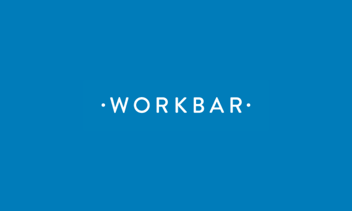Elevating the Coworking Experience: Beyond Butts in Seats

The coworking landscape is transforming, embracing a 'flight to quality' approach akin to traditional office spaces. Initially, the appeal of coworking spaces lay in their cost-effectiveness and flexibility, predominantly attracting freelancers, startups, and small businesses. Now, this trend is rapidly evolving. A diverse array of businesses, ranging from nimble startups to established corporations, are currently seeking high-caliber coworking spaces that transcend basic functionalities. This shift to trophy coworking spaces is driven by an increasing awareness of how the work environment profoundly influences employee productivity, creativity, and overall well-being. Consequently, there's a burgeoning demand for coworking spaces that are aesthetically pleasing, equipped with cutting-edge technology, and a hospitality-driven ethos.
Today’s coworking spaces must provide expansive networking opportunities, host professional events, and feature comprehensive wellness amenities. This evolution reflects the changing requirements of a broad spectrum of businesses. It signifies a maturity within the coworking sector, as it adapts to meet the needs of a discerning clientele seeking exceptional quality and value in their workspace solutions.
As a frontrunner in understanding the built environment's impact on its occupants, we’ve observed a marked increase in interest for our WELL Certified spaces at Workbar. The demand extends beyond visible amenities like fitness centers or wellness programs such as yoga and meditation. Employers are delving deeper, showing keen interest in aspects like lighting quality, air purity, and the variety of working environments available to their team. These factors, often overlooked due to their invisible nature, are the true drivers of productivity and well-being in the workplace.
Technology integration is another crucial aspect. In a world where digital connectivity is indispensable, tenants increasingly seek spaces offering high-speed internet, sophisticated telecommunications infrastructure, and smart building technologies. These features don't just boost operational efficiency; they create a more fluid and effective work environment. At Workbar, we pride ourselves on staying ahead of the curve, offering unique amenities that can't be found at home, like podcast studios, Telepresence Rooms, content creation rooms, and a suite of devices catering to a generation that grew up with smartphones.
Sustainability is a core priority at Workbar, reflecting a growing environmental consciousness among tenants seeking eco-friendly spaces. Recognizing that operating at partial capacity is inefficient and wasteful, Workbar's design is versatile, accommodating anywhere from one to 100 people. Our unique 'coworking neighborhoods' concept underpins this efficiency. These neighborhoods allow occupants to fluidly transition between areas tailored for different activities and work styles. Whether it's starting the day in a serene, focus-driven space, collaborating in an open-plan area, or unwinding in a relaxed, lounge-like zone, this variety combats the mental and physical stagnation of a static workspace. More than just spatial diversity, it's a journey through different environments, each fostering creativity and offering fresh perspectives. This adaptability is not only a testament to our commitment to fostering an innovative and dynamic work culture but also integral to our dedication to creating an inclusive and sustainable workplace ecosystem.
Ultimately, the core appeal of coworking spaces remains their flexibility and the facilitation of collaborative work environments. The traditional model of glass offices scattered across a single floor is obsolete, as are the workforces for which they were designed. Today, the emphasis is on open-plan designs, adaptable office layouts, and communal areas that nurture collaboration and creativity. These spaces are intentionally designed to accommodate the evolving needs of businesses, fostering a dynamic and interactive work culture. The shift towards high-quality coworking spaces will naturally eliminate those that fail to prioritize the needs and experiences of their users.


